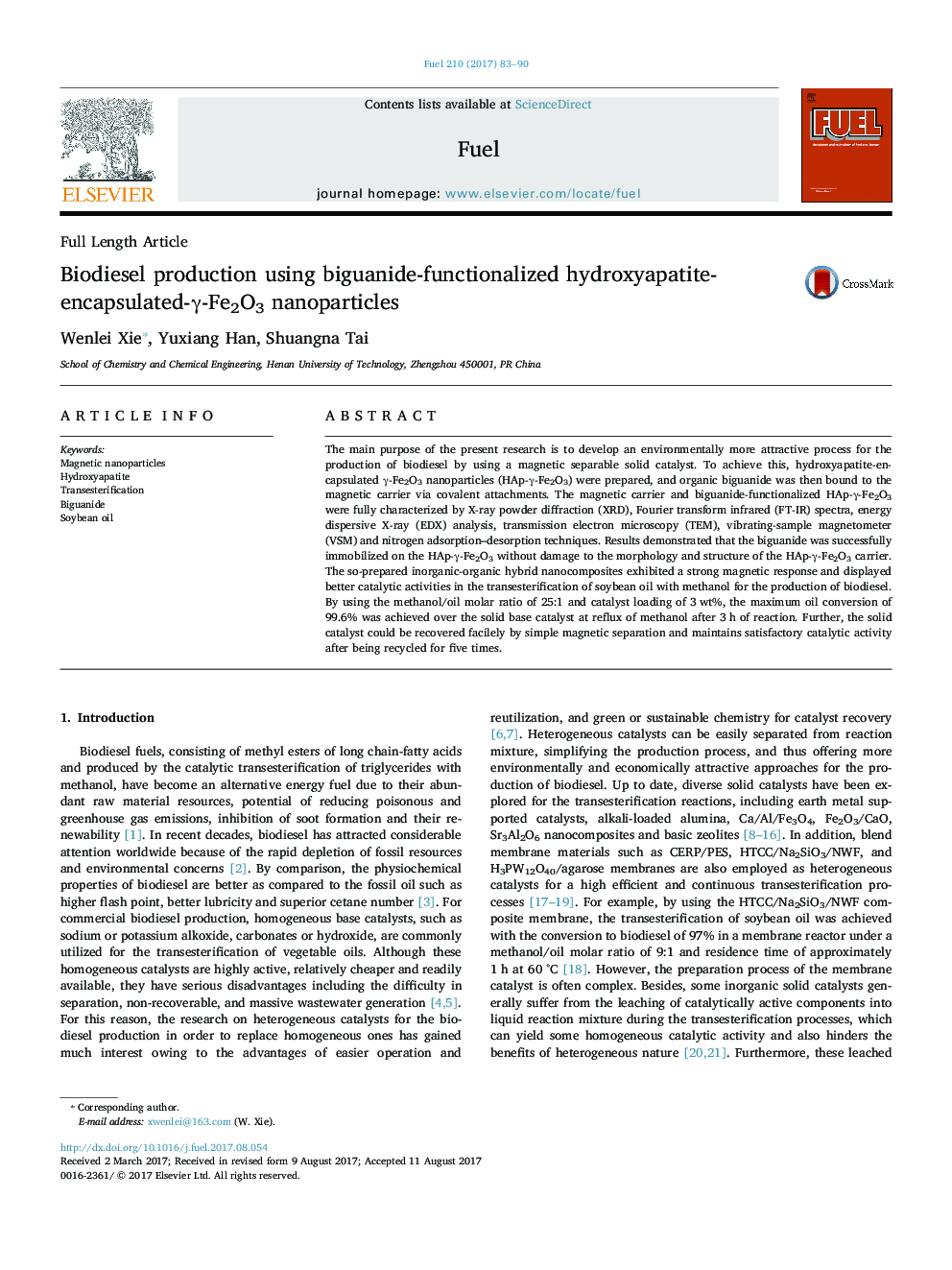| Article ID | Journal | Published Year | Pages | File Type |
|---|---|---|---|---|
| 4768304 | Fuel | 2017 | 8 Pages |
Abstract
The main purpose of the present research is to develop an environmentally more attractive process for the production of biodiesel by using a magnetic separable solid catalyst. To achieve this, hydroxyapatite-encapsulated γ-Fe2O3 nanoparticles (HAp-γ-Fe2O3) were prepared, and organic biguanide was then bound to the magnetic carrier via covalent attachments. The magnetic carrier and biguanide-functionalized HAp-γ-Fe2O3 were fully characterized by X-ray powder diffraction (XRD), Fourier transform infrared (FT-IR) spectra, energy dispersive X-ray (EDX) analysis, transmission electron microscopy (TEM), vibrating-sample magnetometer (VSM) and nitrogen adsorption-desorption techniques. Results demonstrated that the biguanide was successfully immobilized on the HAp-γ-Fe2O3 without damage to the morphology and structure of the HAp-γ-Fe2O3 carrier. The so-prepared inorganic-organic hybrid nanocomposites exhibited a strong magnetic response and displayed better catalytic activities in the transesterification of soybean oil with methanol for the production of biodiesel. By using the methanol/oil molar ratio of 25:1 and catalyst loading of 3 wt%, the maximum oil conversion of 99.6% was achieved over the solid base catalyst at reflux of methanol after 3 h of reaction. Further, the solid catalyst could be recovered facilely by simple magnetic separation and maintains satisfactory catalytic activity after being recycled for five times.
Related Topics
Physical Sciences and Engineering
Chemical Engineering
Chemical Engineering (General)
Authors
Wenlei Xie, Yuxiang Han, Shuangna Tai,
